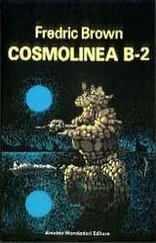Эллен Глазгоу - Barren Ground
Здесь есть возможность читать онлайн «Эллен Глазгоу - Barren Ground» весь текст электронной книги совершенно бесплатно (целиком полную версию без сокращений). В некоторых случаях можно слушать аудио, скачать через торрент в формате fb2 и присутствует краткое содержание. Жанр: Классическая проза, на английском языке. Описание произведения, (предисловие) а так же отзывы посетителей доступны на портале библиотеки ЛибКат.
- Название:Barren Ground
- Автор:
- Жанр:
- Год:неизвестен
- ISBN:нет данных
- Рейтинг книги:3 / 5. Голосов: 1
-
Избранное:Добавить в избранное
- Отзывы:
-
Ваша оценка:
- 60
- 1
- 2
- 3
- 4
- 5
Barren Ground: краткое содержание, описание и аннотация
Предлагаем к чтению аннотацию, описание, краткое содержание или предисловие (зависит от того, что написал сам автор книги «Barren Ground»). Если вы не нашли необходимую информацию о книге — напишите в комментариях, мы постараемся отыскать её.
Barren Ground — читать онлайн бесплатно полную книгу (весь текст) целиком
Ниже представлен текст книги, разбитый по страницам. Система сохранения места последней прочитанной страницы, позволяет с удобством читать онлайн бесплатно книгу «Barren Ground», без необходимости каждый раз заново искать на чём Вы остановились. Поставьте закладку, и сможете в любой момент перейти на страницу, на которой закончили чтение.
Интервал:
Закладка:
"That's a bad turn," remarked Jason.
"I know. Pa is always hoping that he will have time to fix it. We used to keep the gate shut, but it has sagged so that it has to stay open."
"They ought to mend the bridge first. Those holes are dangerous for horses."
Again she assented. Why, she wondered vaguely, did he emphasize the obvious?
Within its grove of trees, in the midst of last summer's weeds, which were never cut, the long whitewashed house wore a forlorn yet not inhospitable air. Through the snow the hooded roof looked close and secretive; but there was the glimmer of a lamp in one of the lower windows, enormous lilac bushes, which must lend gaiety in April, clustered about the porch, and the spreading frame wings, added by old John Calvin Abernethy, still gave an impression of comfort. It was the ordinary Virginian farm-house of the early nineteenth century, built for service rather than for beauty; and retaining, because of its simplicity, a charm which had long since departed from more ambitious pieces of architecture.
"So we're home again," said Jason, glancing about him.
The buggy had come to a stop by the front steps, and regardless of the mare's impatience, he sprang to the ground and helped the girl to alight.
"Yes, it looks bare, doesn't it?"
She lifted her face to his as she answered, and while he looked down into her eyes, a quiver passed over his mouth under the short red moustache.
"Do you go over every day?" he asked. "Why haven't I met you before?"
She looked down. "Oh, I had to help out at home. But I've worked in the store ever since Mrs. Pedlar was taken ill. I get there about eight usually and stay until just before sunset."
"For which, I suppose, you receive an extravagant salary?"
She blushed at his whimsical tone. "They pay me ten dollars a month."
"Ten dollars a month!" A low whistle escaped his lips. "And-you walk four miles a day to earn it."
"I don't mind the walk. In good weather I'd rather be out of doors. Besides somebody usually picks me up."
"Exactly. As I did this evening. If I hadn't, it would have been after dark when you got home.' Well, I can help you while I'm here," he added carelessly. "I go that way every day, and I'll look out for you."
Again the dumbness seized her, and she stood there rooted like a plant, while he looked at her. For a moment, so intent was his gaze, she felt that he had forgotten her presence. It was not in the least as if he were staring at her shawl or her mud-stained ulster, or her broken shoes; it was not even as if he were looking at her eyes and thinking how blue they were. No, it was just as if he were seeing something within his own mind.
"I've known so few girls," he said presently, as if he were talking to himself, "but, somehow, you seem different." Then with delightful irrelevance, he added playfully, "Don't forget me. I shall see you soon."
After he had driven away, she stood gazing after him. Again the mare hesitated, again the wheels crunched on the rocky place. Then the buggy rolled over the bridge; she heard the sound of his voice as he avoided a hole; and a minute later the vehicle had disappeared in the border of leafless woods.
"Don't forget me. I shall see you soon."
Eight words, and the something different had at last happened to her! Everything around her appeared fresh and strange and wonderful, as if she were looking at it clearly for the first time. The snow wrapped her softly like a mist of happiness. She felt it caressing her cheek, and it seemed to her, when she moved, that her whole body had grown softer, lighter, more intensely alive. Her inner life, which had been as bare as a rock, was suddenly rich with bloom. Never again could she find the hours dull and empty. "Don't forget me. I shall see you soon," sang her thoughts.
Chapter 4
As she stepped on the porch, Rambler, an old black and yellow hound, with flapping ears and the expression of a pragmatic philosopher, stole out of the shadows and joined her.
"You'd better come in or Pa will begin to worry about you," she said, and her voice startled her because it did not sound as if it were her own. "I know you've been chasing rabbits again."
She wondered if the suppressed excitement showed also in her face, and if her mother, who noticed everything, would detect it. After she had entered the hall, which smelled of bacon and dried apples, she stopped and tried to rub the bloom of ecstasy off her cheeks. Then, followed sedately by Rambler, she passed the closed door of the parlour, which was opened only for funerals or when the circuit minister was visiting them, and went into the kitchen at the back of the house. The family must have heard the wheels, and it was a mercy, she told herself, that Rufus or Josiah had not come out to meet the buggy.
"Ma, Rose Emily sent you a pat of butter," she said, "and Nathan gave me two pounds of brown sugar."
Her eyes blinked in the light; but it was not the smoky flare of the lamp on the table that made the big kitchen, with its rough whitewashed walls, its old-fashioned cooking-stove, its dilapidated pine table and chairs, its battered pots and pans suspended from nails, its unused churn standing in the accustomed place on the brick hearth-it was not the lamp that made the room appear as unfamiliar as if she had never seen it before. Nor was it the lamp that cast this peculiar haziness, like a distant perspective, over the members of her family.
Mrs. Oakley, a tall, lean, angular woman, who had been almost beautiful for a little while forty years before, placed the coffee-pot on the table before she turned to look at her daughter. Under her sparse grey hair, which was strained tightly back and twisted in a small knot on her head, her face was so worn by suffering that a network of nerves quivered beneath the pallid veil of her flesh. Religious depression, from which she still suffered periodically, had refined her features to austerity. Her pale grey eyes, with their wide fixed stare, appeared to look out of caverns, and endowed her with the visionary gaze of a mystic, like the eyes of a saint in a primitive Italian painting. Years ago, while Dorinda was still a child, her mother had been for weeks at a stretch what people called "not quite right in her mind," and she had talked only in whispers because she thought the country was listening. As long as the spell lasted, it had seemed to the child that the farm-house crouched like a beaten hound, in the midst of the brown fields, beneath the menacing solitude. Since then she had never lost the feeling that the land contained a terrible force, whether for good or evil she could not tell, and there were hours when the loneliness seemed to rise in a crested wave and surge over her.
As she took the basket from her daughter, Mrs. Oakley's features softened slightly, but she did not smile. Only very young things, babies, puppies, chickens just out of the shell, made her smile, and then her smile was more plaintive than cheerful.
"Rufus can have his buckwheat cakes for breakfast," she said, without stopping in her movements from the table to the safe and from the safe to the stove.
She had worked so hard for so many years that the habit had degenerated into a disease, and thrift had become a tyrant instead of a slave in her life. From dawn until after dark she toiled, and then lay sleepless for hours because of the jerking of her nerves. She was, as she said of herself, "driven," and it was the tragedy of her lot that all her toil made so little impression. Though she spent every bit of her strength there was nothing to show for her struggle. Like the land, which took everything and gave back nothing, the farm had drained her vitality without altering its general aspect of decay.
"That's good!" exclaimed Rufus, a handsome boy of eighteen, with straight black hair, sparkling brown eyes, and the velvety dark red of Dorinda's lips and cheeks. He was the youngest child, and after he had been nursed through a virulent attack of scarlet fever, he had become the idol of his mother, in spite of a temperamental wildness which she made the subject of constant prayer. There was ceaseless contention between him and his elder brother, Josiah, a silent, hardworking man of thirty, with overhanging eyebrows and a scrubby beard which he seldom trimmed. After the birth of her first child there had been a sterile period in Mrs. Oakley's life, when her mental trouble began, and Dorinda and Rufus both came while she was looking ahead, as she told herself, to a peaceful middle age unhampered by childbearing.
Читать дальшеИнтервал:
Закладка:
Похожие книги на «Barren Ground»
Представляем Вашему вниманию похожие книги на «Barren Ground» списком для выбора. Мы отобрали схожую по названию и смыслу литературу в надежде предоставить читателям больше вариантов отыскать новые, интересные, ещё непрочитанные произведения.
Обсуждение, отзывы о книге «Barren Ground» и просто собственные мнения читателей. Оставьте ваши комментарии, напишите, что Вы думаете о произведении, его смысле или главных героях. Укажите что конкретно понравилось, а что нет, и почему Вы так считаете.










![Эллен Дедженерес - Кроме шуток [Как полюбить себя, продать дуршлаг дорого, прокачать мозг с помощью телешоу и другие истории от Эллен Дедженерес] [litres]](/books/384873/ellen-dedzheneres-krome-shutok-kak-polyubit-sebya-p-thumb.webp)

